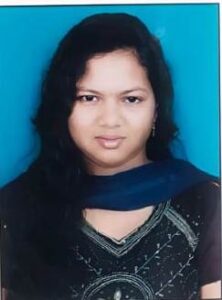Civil Engineering
Vision:
To develop into a premier institution that produces highly skilled civil engineers and encourages cutting-edge research to address the field’s present and future challenges.
Mission:
- To develop highly skilled civil engineers with moral principles to benefit the society and individuals.
- To establish the department as a premier hub for civil engineering and related research.
- To encourage build engineers to think creatively and innovatively in order to meet the problems of the future.
- To offer the community a knowledge base and consulting services in all facets of civil engineering.
- To serve the nation’s citizens by giving students a comprehensive, excellent education that prepares them for a prosperous professional life.
Objectives:
- The graduates will play a crucial role in creating sustainable infrastructure.
- As entrepreneurs or members of an organization, the graduates will continue to learn how to use emerging technology.
- The graduates will be qualified civil engineers who have social and ethical obligations.
Quality Policy of Department:
Dedication to producing top-notch engineering designs and projects by following industry guidelines, putting safety first, implementing strict quality control procedures during the design and construction phases, encouraging ongoing development, and guaranteeing moral behavior while satisfying client demands and beyond expectations.
Faculty List
| Asmita Kumari Nayak |  |
| Assistant Professor | |
| Civil Engineering | |
| B.TECH , M.TECH | |
| Teacher ID: T240142821 |
| Rudra Prasad Mallia |  |
| Assistant Professor | |
| Civil Engineering | |
| B.TECH , M.TECH | |
| Teacher ID: T230142813 |
| Rajashree Pandia |  |
| Assistant Professor | |
| Civil Engineering | |
| B.TECH , M.TECH | |
| Teacher ID: T230142802 |
| Soni Kumari |  |
| Assistant Professor | |
| Civil Engineering | |
| B.TECH , M.TECH | |
| Teacher ID: T230142816 |
Lesson Plans
| SEMESTER | Faculty Name | PREVIEW |
| 1stSem Basic Civil Engineering | Asmita Kumari Nayak | CLICK HERE TO DOWNLOAD |
| 2nd Sem Basic Civil Engineering | Asmita Kumari Nayak | CLICK HERE TO DOWNLOAD |
| 3rd Sem Mechanics Of Solid | Rajashree Pandia | CLICK HERE TO DOWNLOAD |
| 3rd Sem Surveying | Asmita Kumari Nayak | CLICK HERE TO DOWNLOAD |
| 4th Sem Structural Analysis | Rajashree Pandia | CLICK HERE TO DOWNLOAD |
| 4th Sem Water supply & Sanitary Engineering | Soni Kumari | CLICK HERE TO DOWNLOAD |
| 4th Sem Geotechnical Engineering | Rudra Prasad Mallia | CLICK HERE TO DOWNLOAD |
| 4th Sem Fluid Dynamics | Asmita Kumari Nayak | CLICK HERE TO DOWNLOAD |
PROGRAMME OUTCOMES (POs)
1.PO1 (Engineering knowledge): Apply the knowledge of mathematics, science, engineering fundamentals, and an engineering specialization to the solution of complex engineering problems.
2.PO2 (Problem analysis): Identify, formulate, review research literature, and analyze complex engineering problems reaching substantiated conclusions using first principles of mathematics, natural sciences, and engineering sciences.
3.PO3 (Design/development of solutions): Design solutions for complex engineering problems and design system components or processes that meet the specified needs with appropriate consideration for the public health and safety, and the cultural, societal, and environmental considerations.
4.PO4 (Conduct investigations of complex problems): Use research-based knowledge and research methods including design of experiments, analysis and interpretation of data, and synthesis of the information to provide valid conclusions.
5.PO5 (Modern tool usage): Create, select, and apply appropriate techniques, resources, and modern engineering and IT tools including prediction and modeling to complex engineering activities with an understanding of the limitations.
6.PO6 (The engineer and society): : Apply reasoning informed by the contextual knowledge to assess societal, health, safety, legal and cultural issues and the consequent responsibilities relevant to the professional engineering practice.
7.PO7 (Environment and sustainability): Understand the impact of the professional engineering solutions in societal and environmental contexts, and demonstrate the knowledge of, and need for sustainable development.
8.PO8 (Ethics): Apply ethical principles and commit to professional ethics and responsibilities and norms of the engineering practice.
9.PO9 (Individual and team work):Function effectively as an individual, and as a member or leader in diverse teams, and in multidisciplinary settings.
10.PO10 (Communication): Communicate effectively on complex engineering activities with the engineering community and with society at large, such as, being able to comprehend and write effective reports and design documentation, make effective presentations, and give and receive clear instructions.
11.PO11 (Project management and finance): Demonstrate knowledge and understanding of the engineering and management principles and apply these to one’s own work, as a member and leader in a team, to manage projects and in multidisciplinary environments.
12.PO12 (Life-long learning): Recognize the need for, and have the preparation and ability to engage in independent and life-long learning in the broadest context of technological change.
COURSE OUTCOMES (COs)
PROGRAMME EDUCATIONAL OBJECTIVES (PEOs)
PEO1: To understand and analyze engineering issues in a broader perspective with ethical responsibility towards sustainable development.
PEO2: To develop professional skills in students that prepares them for immediate employment and for lifelong learning in advanced areas of Science & Technology.
PEO3: To develop overall personality and character with team spirit, professionalism, integrity, and moral values with the support of humanities, social sciences and physical education courses.
PROGRAM SPECIFIC OUTCOMES (PSOs)
PSO1: Apply principles of mechanics and basic sciences to analyze civil engineering structures. Survey, map, measure and analyze data for sustainable infrastructure planning.
PSO2:Ability to enhance research skills and utilize advanced computing tools for analysis, design and implementation of these systems for resolving real life / social problems.
PSO3:To prepare plan, drawings, estimates, reports and execute all Civil Engineering projects by applying modern construction techniques, equipments and software’s which will equip them to complete the project in the stipulated time and cost.



